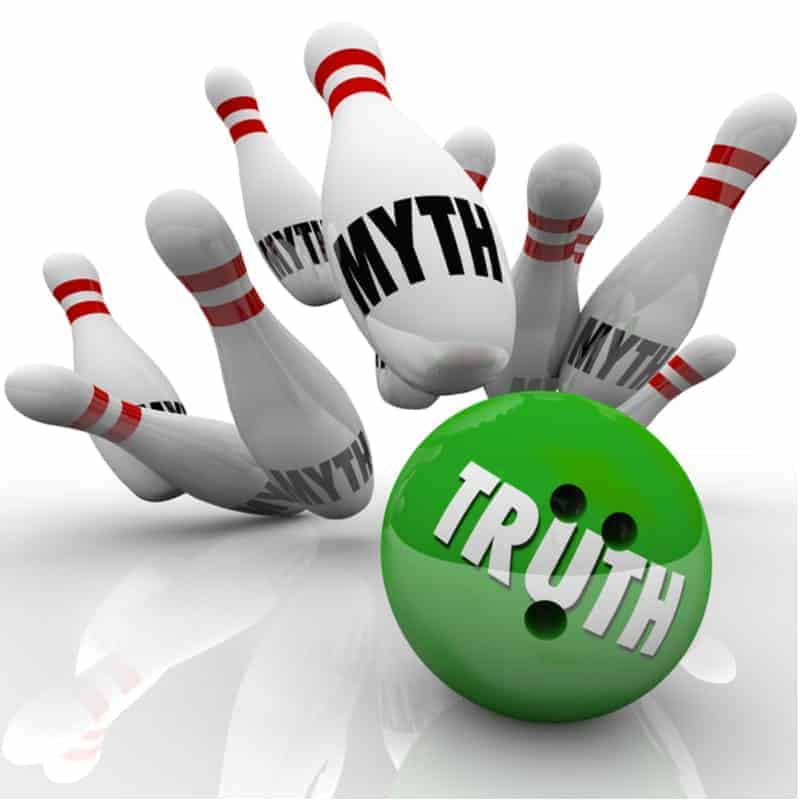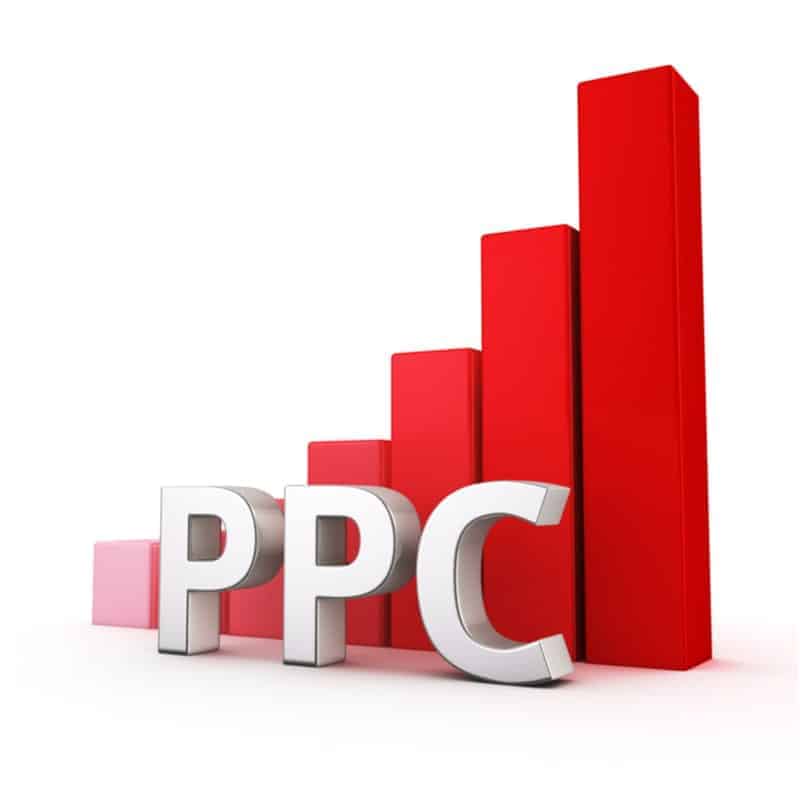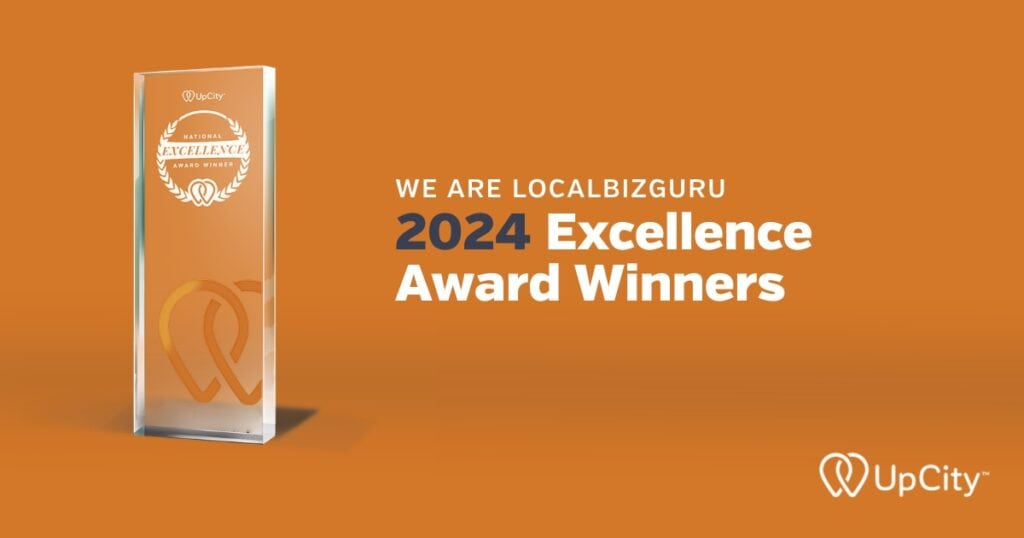

Seven Strong Reasons to Add PPC Advertising to Your 2020 Marketing Mix
Recent Posts
Subscribe Via Email
PPC advertising (pay-per-click) is a prominent form of search engine marketing that can help your business get noticed. It can increase your visibility on search engines and social media platforms.
Although PPC advertising is powerful, many small businesses still don’t use it.
Clutch, a data-driven field guide, surveyed 351 entrepreneurs to find out how they applied Search Engine Optimization (SEO) and PPC in their marketing efforts. Their researchers discovered:
- Only 45 percent of the small businesses surveyed used PPC.
- Most owners invested modestly in PPC.
- Approximately two-thirds (65 percent) devoted 30 percent or less of their budget to paid campaigns.
Many business owners and entrepreneurs don’t realize how efficient this advertising tool can be in their wheelhouse.
In this article, you’ll learn seven reasons why your company should launch a PPC advertising campaign.
What is Search Engine Optimization?
Marketers use a strategy called Search Engine Optimization (SEO) to improve the search engine rankings of websites.
SEO is the process of increasing the amount and quality of web traffic by making a website more visible to a search engine. It also refers to the improvement of unpaid, or organic, results. It often excludes direct, paid advertisement placement.
Most small business owners understand how critical SEO is. Concerted SEO efforts help their sites rank better in Google’s search engine results pages (SERP). It generates free marketing for sites that land within the first few spots. These positions also ensure that potential customers see their pages first before their competitors’.
For instance, if a customer visits a local home improvement store to buy plants, they’ll enter their term into a search engine and hit enter. Most consumers will only visit the first few results they see on Google and ignore the rest.
How Do Search Engines Use SEO?
Search engine crawlers use SEO factors they gather from webpages to decide how to rank sites. Search engines use algorithms to assign site positions on results pages. Google, the most popular one, uses PageRank, a trademarked algorithm, to determine this order.
There are two indicators that Google, Bing, Yahoo, and others use: on-page and off-page SEO.
On-page SEO factors – Marketers use on-page indicators placed on a webpage to boost their site’s search engine rankings. Search engines, like Google, generally analyze several things:
- Quality of the website’s code (HTML, CSS, JavaScript)
- Speed and loading time of pages
- The website’s structure
- The site’s content and copy
- Localization
According to Clutch’s 2018 survey, 46 percent of businesses use local search optimization, and 37 percent use on-site optimization.
Off-page SEO factors – These are different factors outside your site that can integrate to improve your SEO rankings. They include the following:
- Quality links from influential and relevant websites
- Outside marketing activities
- Creation of social media sites and community platforms with large followings
- Off-page SEO generally takes a long time to generate organic leads, although they are helpful.
What is PPC Advertising?

PPC advertising is the largest advertising model used by major search engines and social media platforms like Google, Bing, and Facebook. This method is an exceptional way to generate increased traffic or conversion metrics.
PPC advertising benefits both the advertiser and publisher. Marketers can spend part of their budget on keywords.
Additionally, businesses have the option to change and adjust them in the future if they don’t reach their targeted demographic. Fixed banner advertisement requires advertisers to commit for a month or more before they can switch keywords.
The most popular form of PPC is search engine advertising. Businesses place a bid for placing an ad in a sponsored links section of a search engine, such as Google. It is displayed when a person enters a keyword that’s related to their company’s products and services.
For instance, if a small business places a bid on car dealerships in Boise, Idaho, your ad may float to the top of search results.
Under the PPC model, advertisers don’t pay for each ad impression or its placement. Although a bid amount may affect where their ad gets placed, companies only pay a fee when an online visitor clicks their ad.
When PPC advertising works well, companies only pay a low fee but get substantial returns on their investment purchase. For instance, a business may pay $2 for a PPC advertisement click to their website that results in a profit of a $250 sale.
Companies generally buy three types of PPC ads:
- Text Ads: These ads generally use text copy from a marketer for their advertisement. The format will depend on the PPC platform used. These ads are triggered when a user submits a term using Google, Bing, or another search engine.
- Display Ads: These advertisements use images or motion graphic formats. Marketers create visual advertisements that conform to the size and content requirements of the PPC platform.
- Shopping Ads: Visitors see these displays after they submit a query through a search engine or at an online shop. These ads generally contain product images, prices, and product specifications.
A well-run PPC campaign researches the right keywords and organizes them into ad groups.
Some marketers create PPC landing pages that are optimized for conversions. Google and other search engines charge less money per ad click when advertisers create well-run PPC campaigns.
If you need help running an effective SEO or PPC advertising campaign, you can hire the experts at LocalBizGuru to help. We can create a campaign that helps generate sales for your business.
Key Differences Between SEO and PPC
Marketers primarily use SEO to improve organic, non-paid results in search engines. SEO does take longer to produce results than other forms of advertising. Although many small businesses invest in SEO, this trend has slowed. Companies don’t know how much these campaigns will cost, nor do they know how long it will take to get a return on their investment (ROI).
PPC advertising serves a different marketing purpose. This non-organic strategy generates traffic using paid, direct ads. SEO is a non-paid advertising model that relies on organic results generated naturally by search engines.
During PPC advertising campaigns, businesses don’t have to wait for a search engine to drive traffic to their site. Nor do they have to rely on social media campaigns that raise awareness about their brand through word-of-mouth. PPC targets specific markets, encouraging customers to engage directly with your ads, brands, and landing page.
SEO and PPC ads are both essential to ensure that small businesses have a successful marketing campaign.
That said, many business owners are still hesitant to incorporate PPC advertising into their digital marketing mix. Why? In most cases, it’s because they mistakenly believe these PPC myths.
Pay-Per-Click Marketing Myths

Many companies have heard one or two horror stories about PPC marketing. Some small businesses have heard several myths associated with PPC marketing campaigns. In this section, we hope to debunk several of those myths.
Myth 1: PPC advertising campaigns are expensive.
Small business owners may believe that PPC ads are expensive since they require them to pay every time someone clicks on an advertisement.
This myth exists because of horror stories of those likely burned by an inexperienced marketer who mishandled a client’s PPC campaigns.
Properly executed, an effective PPC campaign will generate on average $2 for every $1 spent – a 200% ROI! So it’s not an expense, but an investment!
When it comes to PPC, unless you have money to waste on inexperience, you should partner with an agency that has the experience and the track record of success.
Myth 2: PPC ads have enormous click fraud.
A second PPC marketing myth involves click fraud. Companies believe their competitors will intentionally click their advertisements, causing them to incur a huge bill. Once their rivals exhaust their budget, companies believe they can no longer advertise to customers. Marketers call this underhanded strategy, “click fraud.”
The truth is, Google has technology that prevents invalid clicks or other types of fraud. It carefully tracks users’ click patterns. Their Google Ads campaigns are generally accurate, and the provider exposes any suspicious activity.
If businesses are concerned about click fraud, they can contact Google directly to have them investigated. The company reimburses money for any clicks deemed to be fraudulent.
Myth 3: No one clicks on ads anymore.
Entrepreneurs speculate that their advertisements will annoy consumers, who will automatically ignore what they’re selling.
The truth is, the search engine only displays ads that are relevant to a user’s search query. In fact, more than 63 percent of Google visitors admit they’ve clicked on Google advertisements.
Google currently generates more than $100 million in revenue every day from people who click on their advertisements. The average cost ranges between $1 and $2.
Another thing to consider is that research shows that those who click on ads are not in research mode, but are in buying mode. In fact, 65% of all customers click through a link to buy.
“People who visit a website after clicking on a PPC ad are 50 percent more likely to make a purchase compared to visitors who clicked on an organic search result“
That’s a lot of potential revenue to leave on the table!
Myth 4: Small businesses can’t compete with larger companies
Another persistent myth is that a small company’s PPC campaign can’t compete with corporations that have a larger budget. This belief discourages some entrepreneurs from pursuing a PPC advertising campaign.
Research shows that most users search for businesses that have a personal touch and knowledge about their town. Smaller companies provide essential local expertise that larger companies cannot.
Myth 5: Any person can create an effective PPC campaign
A few owners believe they can follow the do-it-yourself route. These individuals mistakenly believe that it’s easy to craft an effective PPC campaign without any experience.
Although Google makes it simple to launch a PPC campaign, it’s challenging to create an effective campaign on your own. Some lose a lot of money on lackluster campaigns when they should have spent that money consulting with an expert to manage their campaign, like LocalBizGuru.
Myth 6: Google Ads is an outbound marketing tactic
Google’s Ads show your content to potential customers once they begin a keyword search. It guarantees that your content will rank in a higher position when users perform a search.
Seven Benefits of PPC Advertising

Google constantly updates and changes its SEO rules, so webmasters have to make site-wide changes to ensure their site ranks higher in search engine results. These changes are often disruptive and can take a long time to implement.
It can also take time for your business to retain customers when you adjust an SEO or social media strategy. PPC ads have immediate benefits and reach your target customer quickly.
Here are seven benefits of implementing a PPC advertising campaign for your small business.
1. You can use transparent methods to track your campaigns
PPC allows marketers to track their advertising campaign’s success by using the statistics provided by Google Ads or Google Analytics. Businesses can learn how many potential customers have engaged with your current ad campaign.
These programs also detect how customers behave after entering your site. It tracks which pages they visit after clicking on your ads. These informative metrics allow you to evaluate your campaign from start to finish and find out what’s working and what’s not working well.
2. PPC can increase your brand’s exposure to the right customers
As mentioned earlier, it can take months before an email marketing or SEO campaign drives organic visits and web traffic to your website. PPC campaigns help businesses reach their core audience faster. Entrepreneurs can create targeted ads and release them within a few hours.
Generally, you’ll need to hire an expert to help create an effective campaign that will grab the attention of your target audience.
Another benefit is that you can make early adjustments if your campaign isn’t working. For instance, if your keywords haven’t generated sales, you can adjust them early within your campaign so that they get noticed. You don’t have to wait for months until your campaign ends.
3. PPC provides more control to businesses than other marketing methods
PPC allows companies to create customized marketing campaigns that suit their goals. Google provides a variety of options that allows businesses to target niche markets regardless of how small they are. It also allows you to take complete control over how much you spend. You can pay as low as $5 per day to generate exposure for your business.
4. You only pay money when a user clicks
Under cost per impression (CMP) marketing models, your business pays for ad exposure rather than actual engagement. Although your campaign may reach millions, it may not generate sales if these visitors are not your core audience. For example, say you’re a business that sells a natural brand of pet food.
You develop a CMP marketing campaign that receives thousands of views. Unfortunately, many of the people viewing your ad don’t own any pets. Since your ad reached the wrong targeted audience, you’re unlikely to generate sales. You’ve spent an enormous amount of money for exposure, but no return on your investment (ROI).
With PPC, you get to target your core audience. Additionally, businesses only pay for ads when a customer clicks it. PPC ads provide a greater chance for conversion when it redirects them to a company’s landing site.
5. PPC ads can draw sales to smaller companies
Even if Google doesn’t list a company within its top search engine results, it can still use PPC ads to drive traffic to their site. Smaller businesses can get an edge over their competitors by using these ads, even if they just launched their site. It allows companies to compete for customers on a more even playing field.
6. Get a second chance to resell your products and services
Lost leads are potential customers who visit your website but fail to make a purchase. You can use remarketing ads to market items that potential customers have placed in their baskets and keep them engaged with your site. You can study your site’s bounce rate to find out how many repeat visitors you have as a percentage of your web traffic.
7. Increase Web Traffic, Conversions and Sales
PPC ads help businesses get noticed by their ideal clients. They also enable them to get their products and services to the right consumers.
A properly devised and executed PPC campaign will generate vital web traffic that drives conversions and sales.
An often overlooked opportunity to leveraging a PPC web traffic campaign is implementing one when you are ready to launch a new website.
By soft-launching the website via a PPC ad campaign, you can glean valuable user experience (UX) data. Tracking the early visitors’ journey through your website, you can adjust the elements that need to improve before the full-blown launch.
The Bottom Line For Your Bottom Line
As we’ve covered and demonstrated above, incorporating PPC advertising into your digital marketing mix in 2020 is both a wise and cost-effective tactic to improve your business and its success online – no matter the objective.
Does your business need to design an effective PPC campaign? The experts at LocalBizGuru can help. Our marketing and advertising experts have more than twelve years of digital marketing experience.
Schedule an appointment to learn how we can help your business today.




